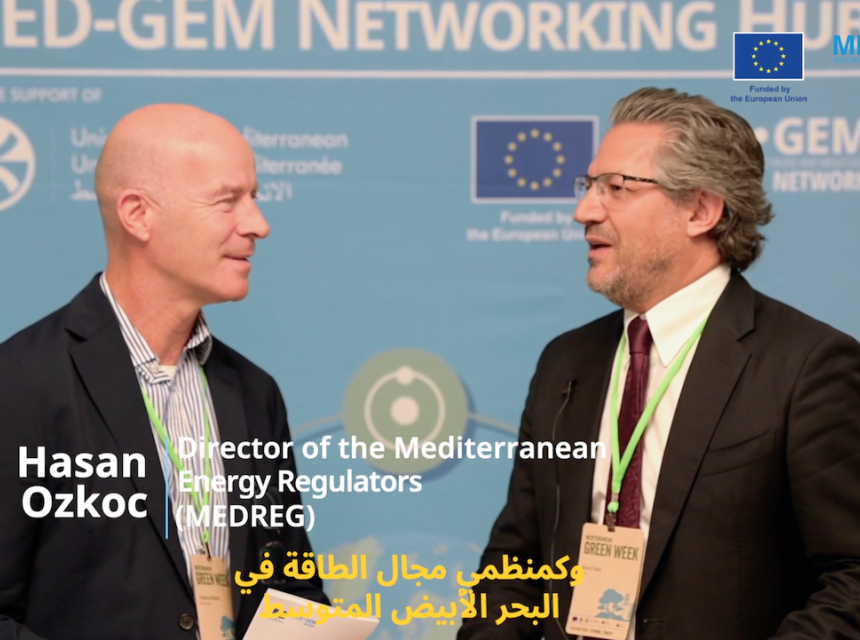MEDREG & GH2, Toward a Harmonized Mediterranean Energy Market
In a recent conversation with Frank Wouters director of MED-GEM Network during the first UfM Mediterranean Green Week in Istanbul, Hasan Ozkoc, Director of the Mediterranean Energy Regulators (MEDREG), shed light on the challenges and prospects of fostering a unified energy market across the Mediterranean region.
📺 Watch on YouTube with Arabic Subtitles
Building a Sustainable and Integrated Energy Market
Hasan Ozkoc underscored MEDREG's primary goal: promoting a sustainable, harmonized, and transparent energy regulation framework. This framework aims to ensure a competitive and well-functioning Mediterranean energy market. The emphasis is on creating interoperable and integrated energy systems with compatible regulations. "Our ultimate goal is a functioning, integrated Mediterranean energy market," M. Ozkoc stated, highlighting the collaborative efforts required among Mediterranean nations.
The Role of Hydrogen in Energy Transition
Hydrogen, particularly green hydrogen of course, emerged as a critical topic during the interview. M. Ozkoc pointed out the recent European Union legislation package that includes hydrogen, stressing the dual nature of hydrogen as both a gas and a product of green electricity. He emphasized the need for coherent regulations that encompass both the gas and electricity sectors. "Hydrogen regulation should align with both gas and electricity sectors, reflecting its dual nature," he explained. The integration of hydrogen into the energy system is seen as vital for the future energy transition, necessitating a meticulous, step-by-step regulatory approach.
Addressing Carbon Pricing Mechanisms
When prompted about carbon pricing, M. Ozkoc unequivocally supported the idea. He stressed the importance of a carbon pricing mechanism to achieve energy transition goals and reduce greenhouse gas emissions. "A carbon pricing mechanism is crucial; without it, reaching our energy transition targets will be challenging," he asserted. The discussion also highlighted the disparity between the European Union's established Emissions Trading Scheme (ETS) and the lack of similar mechanisms in many southern Mediterranean countries. M. Ozkoc revealed MEDREG's plan to create a task force focused on addressing these cross-border carbon mechanisms (CBAM), aiming to bridge the regulatory gap and foster a unified approach to carbon pricing in the region.
The dialogue between Frank Wouters and Hasan Ozkoc at the UfM x MED-GEM « Green Spark Studio » underscored the vital role of regulation in the renewable energy transition. As green hydrogen emerges as a key player in the energy market, the need for harmonized and transparent regulations becomes ever more pressing. MEDREG's commitment to developing a robust regulatory framework for hydrogen and carbon pricing mechanisms is a significant step towards a sustainable and integrated energy future for the Mediterranean region. The insights shared during this event highlight the collaborative efforts required to navigate the complexities of energy transition and achieve global sustainability goals.

